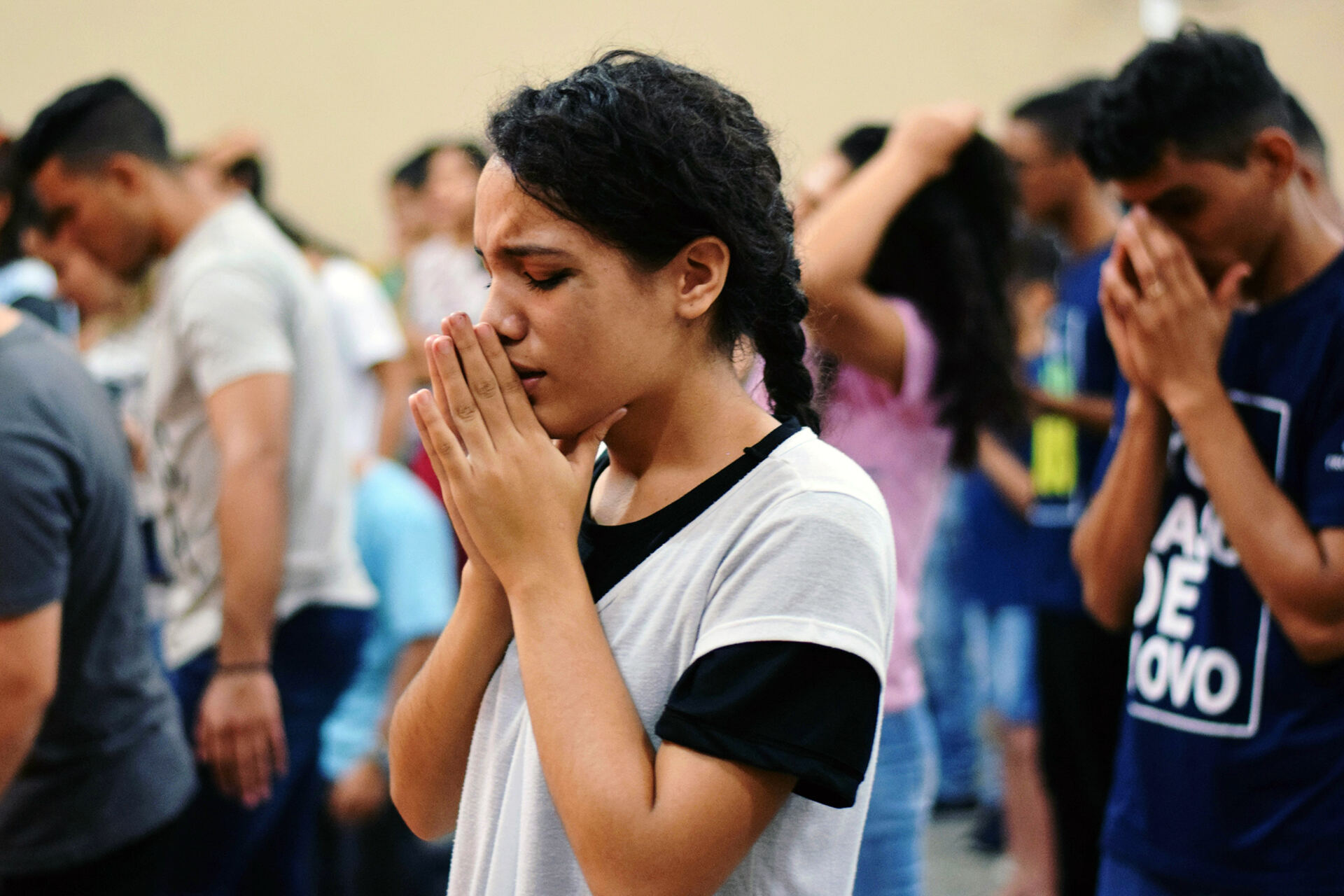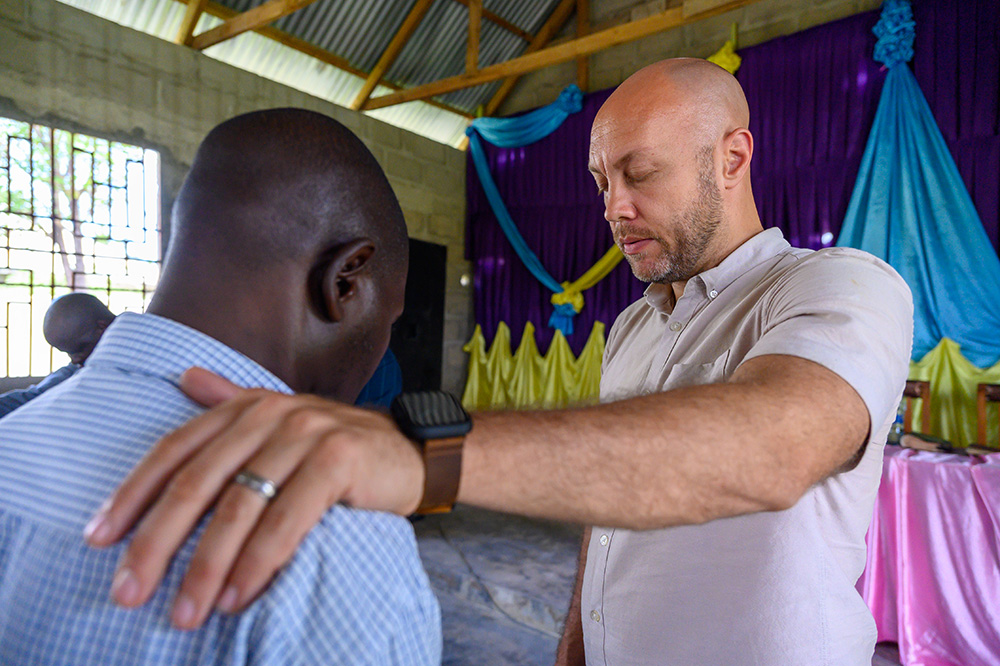“Greet every saint in Christ Jesus. The brothers who are with me greet you. All the saints greet you, especially those of Caesar’s household. The grace of the Lord Jesus Christ be with your spirit.” (Philippians 4:21-23 ESV)
On September 19, 1796, some 10 weeks before the presidential election, George Washington dramatically revealed that he would not seek a third term in office. In what would become known as his Farewell Address, Washington famously proceeded to warn the early American nation against a spirit of party rivalry, reminding readers of their shared religion, culture, and cause to exhort them to carefully guard and preserve their union: “The name of American, which belongs to you in your national capacity, must always exalt the just pride of patriotism more than any appellation derived from local discriminations.”
A person’s parting words are often some of their most memorable and significant. So too, even as Paul concludes his grand epistle with a standard valediction, he calls his readers’ attention to those objects of greatest worth which unite them in the faith.
The Philippians are to greet “every saint”—a reminder that every Christian, because of Christ’s atoning work, is counted as a holy one (hagion, “saint”), contrary to the later idea of sainthood as a special class recognized posthumously by church authorities. They are to greet these saints “in Christ Jesus,” that is, in a manner worthy of Christ, who is the basis of their fellowship. In turn, Paul conveys greetings from the brothers—an ordinary term of endearment reflecting the extraordinary reality that all those who are united with the Son of God are themselves sons of God and brothers to one another, complete with all the rights and privileges associated with sonship.
The “saints of Caesar’s household” also send their regards to Philippi (v. 22). Apparently, the Word of Christ had not only circulated among the imperial guard (1:13) but also among the officials or servants in the emperor’s palace. Among them, English theologian John Lightfoot (1602-1675) argues, were such saints as Amplias, Urbanus, Apelles, Tryphena, Tryphosa, Patrobas, and Philologus—all named both in Romans 16 and in burial inscriptions of imperial household members. The gospel had spread across the empire, the great city, and even Nero’s courts, and at this the embattled saints in Philippi were to take heart. John Chrysostom reflects: “For if those who were in the king’s palace despised all things for the sake of the King of Heaven, far more ought they to do this.”
We must not miss the significance of such expressions of solidarity among various communities of Christians. As followers of Christ, we are members of a global family. In the Apostle’s Creed, we confess faith in “the communion of saints”—the conviction that all believers, past and present, alive or departed, form one single body of Christ, the people of God. As a result, all Christians throughout the world are “joined and united in heart and will, in one and the same Spirit, by the power of faith” (Belgic Confession 27). Because we are united to Christ in his death and resurrection, we are united to one another in love and obligated to build one another up, in public and private, for our good both physically and spiritually (Second London Confession 27.1). This is why we are commanded to gather together locally in churches (Hebrews 10:25), and why we must also remember those Christians mistreated far away as though we suffered with them (13:3). No saint in Christ has the right to be a maverick. Contrary to the individualistic spirit of our age, to be in Christ means to be united visibly, publicly, and relationally to the whole community of those who believe.
At last, we reach Paul’s finis: “The grace of the Lord Jesus Christ be with your spirit” (Philippians 4:23). Having begun with grace, the apostle ends with grace. Grace is not only what saves us (Ephesians 2:8); it is also what strengthens us for continued perseverance in our walk with the Lord (Hebrews 13:9). This grace touches not only the outer life but the inner man, the spirit, where our greatest need lies. Just as Paul’s epistle is bookended by grace, so too, the Christian life is lived in God’s unmerited favor from start to finish.
Like a great national leader issuing a final charge to his people to stand firm together, Paul aims for his readers to strive side by side in the advance of the gospel (Philippians 1:27). Little wonder is it, then, that in his closing remarks he draws their attention to the unity of the church that transcends geographic barriers and to the grace of God which both saves those of the least likely social classes and strengthens the saints continually. So too, let us strive for the faith together with all God’s people in the grace of our risen Lord.
Prayer:
God,
I thank you for regarding me as a saint. I rejoice that I stand in the great assembly of your people from all time and places, and that we are loved and accepted by you in Christ. Help me to remember my fellow believers throughout the world. Strengthen my spirit that I may serve you with yet more zeal. And above all, thank you for your free, unmerited grace towards me.
In Jesus’ name, amen.
Prayer Requests:
- Pray for believers elsewhere in the world suffering persecution and living in fear because of their faith. Petition the Lord that they would be strengthened by God’s grace and encouraged though the unity they share with all God’s people.
- Pray for your church to be marked by the warmth of mutual affection, greeting one another each Lord’s Day and throughout the week in a manner befitting siblings in God’s family.
- Pray for the grace of the Lord Jesus Christ to strengthen his people for the work of mission, starting with you.






